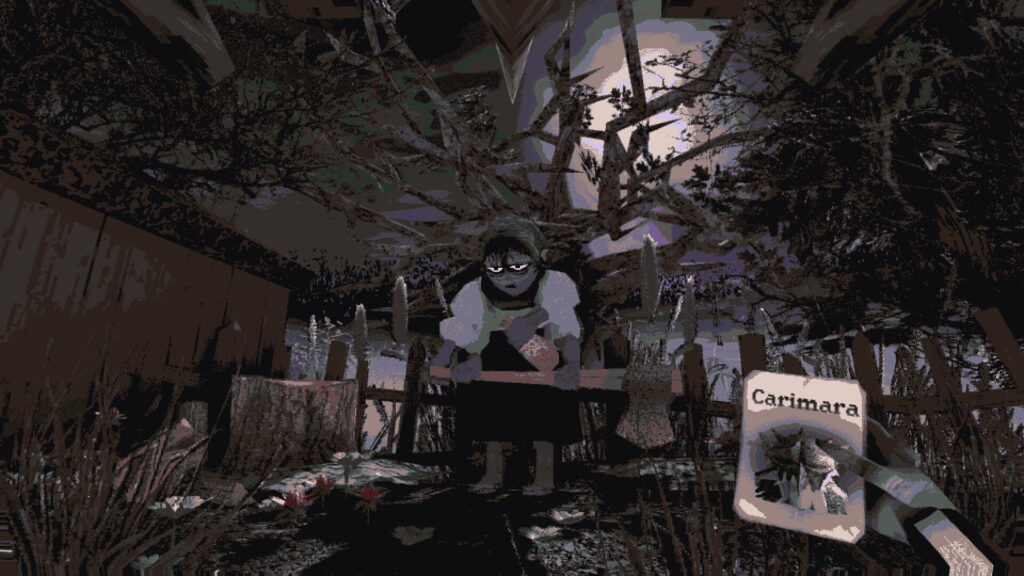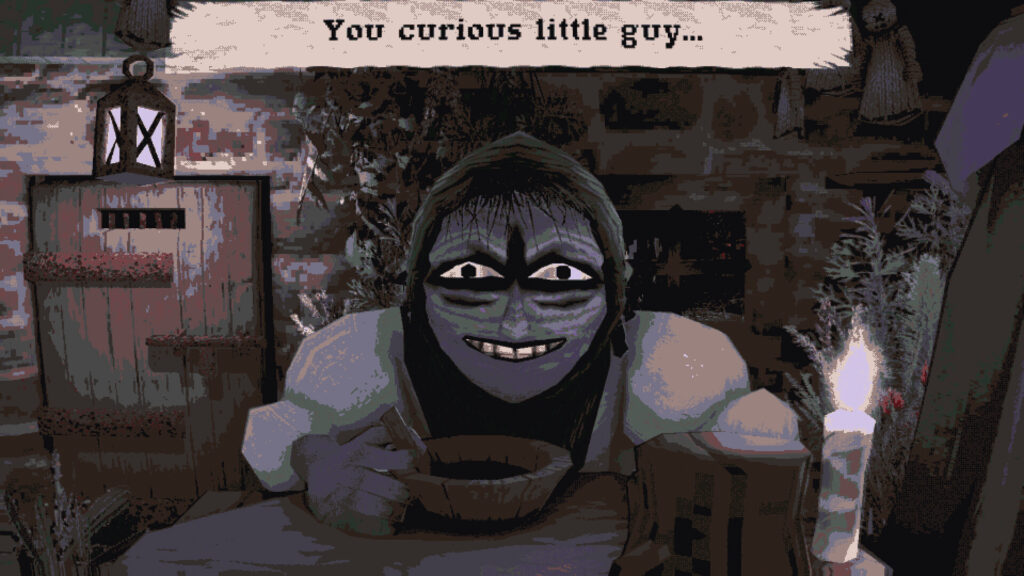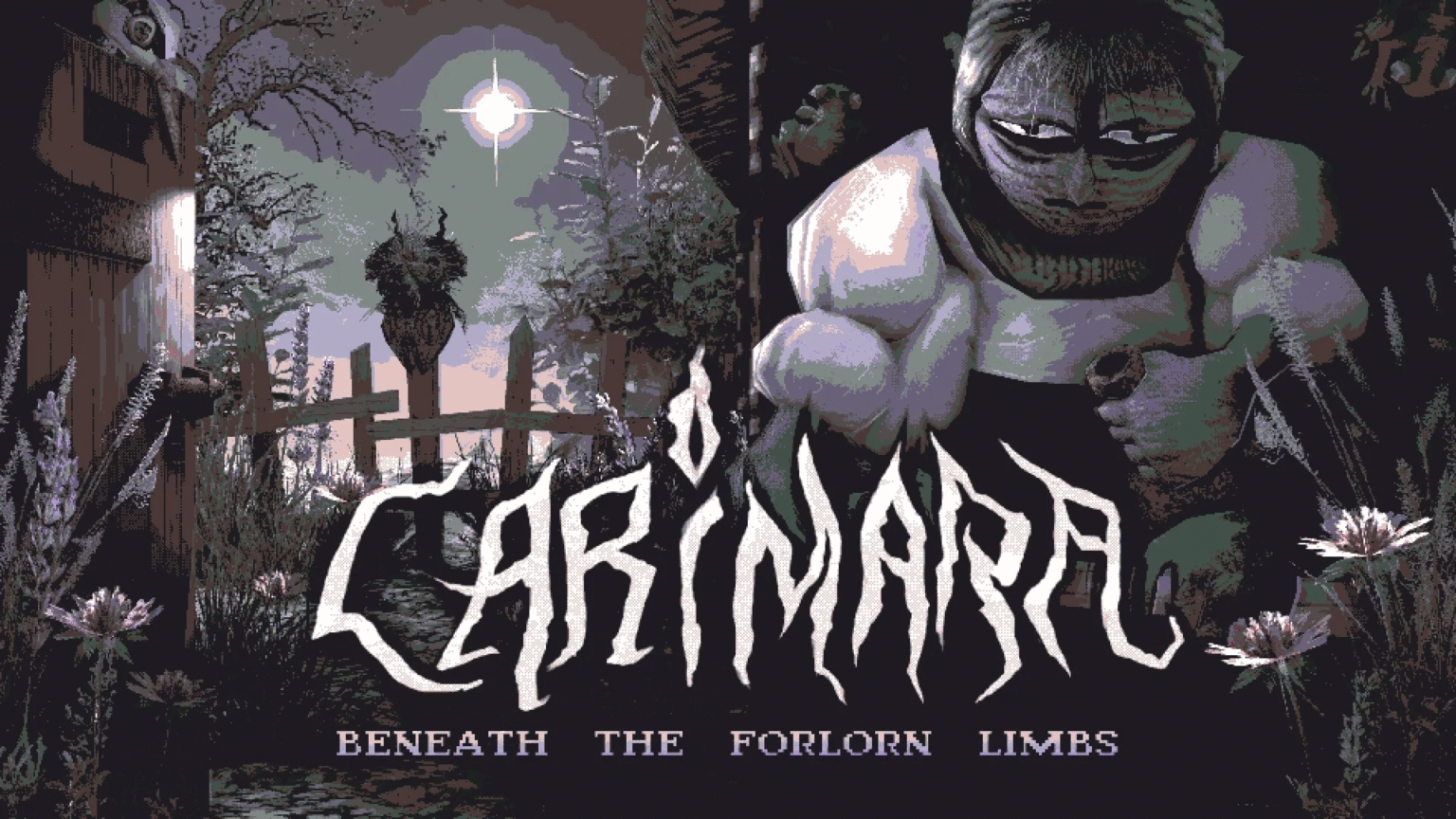Every once in a while, a game slips onto the radar that doesn’t scream for attention — it murmurs. CARIMARA: Beneath the Forlorn Limbs, from solo developer Bastinus Rex and published by Critical Reflex, is exactly that kind of game: a hushed, eerie, poetic hour-long experience that crawls under your skin not with terror, but with tenderness.
This isn’t horror that jumps or screams. It’s horror that breathes. It’s a conversation with ghosts — some in the walls, some in your memories. And though it barely lasts an hour, it lingers like perfume in an empty room long after the credits fade.
We played the PC version on release day, and it’s safe to say that CARIMARA might just be one of the most affecting short-form games of 2025.
A House that Speaks in Secrets
You are the Carimara — a small, mute creature made of moss and mirrorlight, born from grief and dust. You cannot speak, but you can ask. In a decaying mansion stitched together from memory and sorrow, you use arcane cards to communicate — each etched with long-forgotten glyphs that summon fragments of history, emotion, and regret.
You’re not here to fight, explore, or escape. You’re here to listen. To press your palm against an old chair and hear the whisper of who once sat there. To question a mirror and risk having it remember you.
This mechanic — conjuring questions from the remnants of objects — forms the heart of CARIMARA. It’s simple in form but profound in tone. You don’t gather loot or stats; you gather understanding.
And while there are multiple endings, each path feels less like a “choice” and more like a revelation — as if the game itself is reading you.

The Art of Stillness and Unease
Visually, CARIMARA: Beneath the Forlorn Limbs is exquisite. Its environments look like faded dreams painted in candle soot and bone dust — somewhere between a feverish sketch and a decaying fairytale.
The lighting design does much of the heavy lifting here. Each flickering candle, each corner cloaked in gloom, feels alive — as though the house itself is breathing. And in a way, it is. The game’s tagline, “Ask wrong, and you might wake something that remembers your name,” is more than poetic — it’s a warning.
What’s most impressive is that CARIMARA achieves all of this atmosphere with restraint. There are no jump scares, no monsters chasing you through corridors, no screeching violin stabs. The horror is quiet — more “haunted lullaby” than “haunted house.”
And that’s what makes it so effective. You don’t feel watched because the game shows you eyes — you feel watched because it never needs to.
Language of Dust and Flame
The writing in CARIMARA feels like something out of a dark folktale — poetic, cryptic, and melancholy. Every object you touch holds a voice, and every line of dialogue feels like a piece of a forgotten poem.
But what truly elevates it is the sound design. The voice work — if you can call it that — is haunting. The characters speak in what sounds like distorted, filtered French, processed until it’s intelligible enough to feel human, yet alien enough to feel wrong.
It’s as if the walls themselves are trying to remember how to talk.
This filtered “whisper language” isn’t just a creative choice; it’s the soul of the game. It creates a mood unlike anything else — intimate, eerie, and deeply sad. The effect is so strong that even players who don’t understand French report feeling emotionally connected to what’s being said. That’s an accomplishment of pure tone.
Short, Sharp, and Soulful
Let’s be clear: CARIMARA is short. You can finish it in under an hour — maybe 90 minutes if you linger or seek the secret second ending. But that brevity is part of its charm.
This isn’t a game meant to be devoured; it’s meant to be savored.
There are no tutorials, no markers, no objective lists. You piece together meaning through exploration and intuition, and every interaction feels personal. The gameplay is minimal — a blend of point-and-click adventure, light puzzle-solving, and narrative deduction — but it never feels shallow.
Players have compared it to games like Mouthwashing, Lunasid, and Not Human, and that comparison is fitting. It shares the same surreal indie DNA — experimental, narrative-driven, and bursting with artistry.
The second ending adds a layer of intrigue for those willing to dig deeper, encouraging observation and replay. One reviewer described the game as “a puzzle made of whispers,” and that’s about as perfect a summary as you’ll find.

The Price of a Sandwich, the Value of a Poem
Priced around the cost of a sandwich, CARIMARA delivers an experience worth far more. Bastinus Rex himself even jokes in the store description — if you watched a playthrough but still want to support the game, “buy it; it’s worth a good sandwich.”
And he’s right.
There’s an authenticity here that money can’t fake. Every line, every sound, every beam of light feels handcrafted with obsessive care. It’s the kind of game you can tell was made not for fame or profit, but because the creator needed to make it.
It’s art for art’s sake — rare, raw, and deeply human, despite (or maybe because of) its alien presentation.
A Soundtrack That Breathes With You
The ambient score is another highlight. It swells and fades like a sigh — sometimes mournful, sometimes inquisitive. When paired with the soft crackle of candle flames and the creak of distant wood, it creates a soundscape that feels alive.
It’s not music you hum afterward; it’s music you remember feeling. Like the echo of something you dreamt about but can’t quite describe.
Performance and Polish
Technically, CARIMARA runs smoothly, though a few players have reported small bugs — minor clipping issues or audio desyncs. But none of it detracts from the experience. The game’s simplicity in design means it runs well even on modest systems.
It’s as if the game itself rejects excess — visually, mechanically, even technically. Everything unnecessary has been stripped away, leaving only what matters: atmosphere and emotion.
A Whisper That Stays With You
CARIMARA: Beneath the Forlorn Limbs isn’t a game for everyone. It’s quiet, abstract, and achingly short. But for those who crave experiences that feel more felt than played, it’s unforgettable.
It’s a gothic lullaby for the broken-hearted, a riddle told by ghosts, and a masterclass in how minimalism can evoke profound emotion.
Bastinus Rex has created something rare: a game that doesn’t entertain so much as it enchants. You don’t finish CARIMARA — it finishes you.
If you love games like Year Walk, Kentucky Route Zero, or The Cat Lady, this one will haunt you in the gentlest way imaginable.
Pros:
- Gorgeous art direction and haunting sound design
- Unique voice filter and French-inspired dialogue
- Deep atmosphere and emotional weight
- Rewarding secrets and multiple endings
- Beautifully written, poetic narrative
Cons:
- Extremely short (30–90 minutes)
- Some minor bugs and clipping
- Limited replayability beyond secrets
CARIMARA: Beneath the forlorn limbs: In a year of sprawling AAA releases, CARIMARA: Beneath the Forlorn Limbs proves that sometimes the most powerful stories whisper, not shout. For an hour, it invites you to sit in the dark, listen to the dust, and remember — even silence has something to say. – Obsidian


